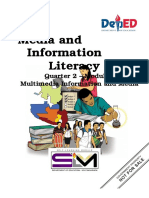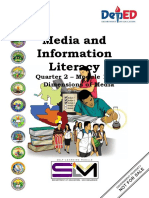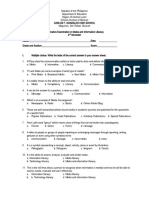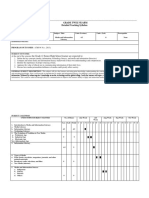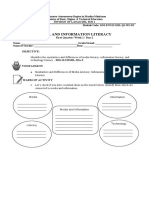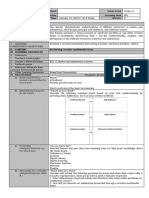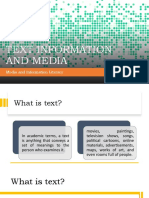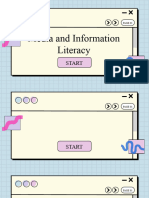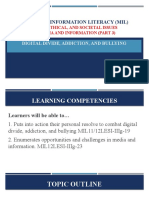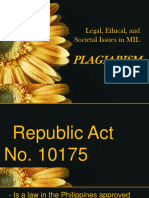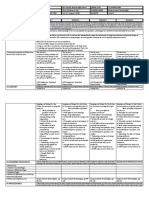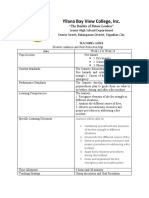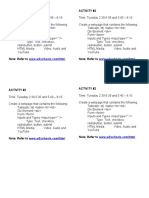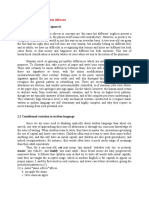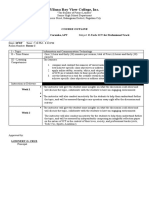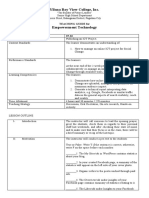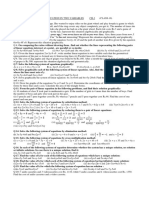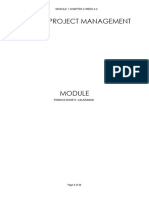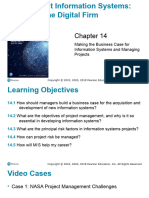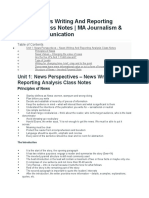50% found this document useful (4 votes)
2K views6 pagesMil Module 8
The document discusses opportunities, challenges, and power of media and information literacy. It covers topics like online shopping, citizen journalism, and challenges like phishing and human trafficking. It also discusses how media and information have impacted education and society.
Uploaded by
Joel Cabusao LacayCopyright
© © All Rights Reserved
We take content rights seriously. If you suspect this is your content, claim it here.
Available Formats
Download as DOCX, PDF, TXT or read online on Scribd
50% found this document useful (4 votes)
2K views6 pagesMil Module 8
The document discusses opportunities, challenges, and power of media and information literacy. It covers topics like online shopping, citizen journalism, and challenges like phishing and human trafficking. It also discusses how media and information have impacted education and society.
Uploaded by
Joel Cabusao LacayCopyright
© © All Rights Reserved
We take content rights seriously. If you suspect this is your content, claim it here.
Available Formats
Download as DOCX, PDF, TXT or read online on Scribd
/ 6
